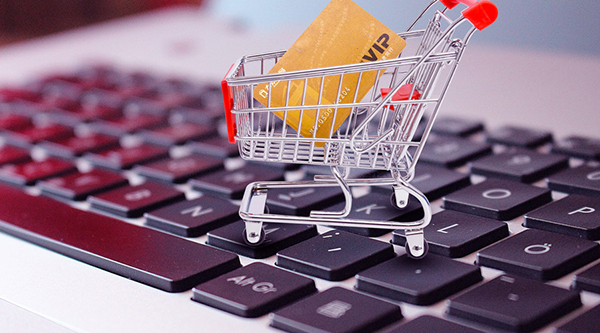1. Na Ying is crowdfunding for tea on JD.com. So many people want to make it?
According to July 19, a few days ago, a "Naying Music Herbal Tea" appeared on JD crowdfunding platform, and the total crowdfunding amount was 100,000 yuan in 5 hours of its launch. As of today, it has received 1,742 supporters and raised 136,766 yuan. According to reports, Naying Music Herbal Tea focuses on the theme of "Nati Music", such as Nashi Blues Tea, Nashi Folk Tea, etc., and there are 12 types. In addition to herbal tea, the products that are crowdfunded this time also include the same canvas bag for Na Ying and the "Na Ying Team" T-shirt with a market price of 499 yuan.
2. The Cyberspace Administration of China deploys an investigation into the "Baidu Night Promotion Gambling Website Incident"
According to July 19, a relevant person in charge of the State Internet Information Office said today that after the "Baidu Night Promotion Gambling Website Incident" occurred on July 17, the State Cyberspace Administration of China attached great importance to it and had asked the Beijing Cyberspace Administration of China to conduct an investigation and announced the investigation results in a timely manner. A relevant official from the Cyberspace Administration of China emphasized that search engine companies such as Baidu must strictly implement the recently issued "Internet Information Search Service Management Regulations", effectively fulfill the main responsibilities of the website and corporate social responsibilities, and resolutely not provide channels for dissemination of illegal and irregular information such as gambling. At the same time, the Cyberspace Administration of China and the Cyberspace Administration of China will strictly investigate and punish relevant illegal and irregular acts in accordance with the law based on the investigation results.
3. Alibaba Health's 2016 Annual Report: Electronic Regulatory Network Revenue Increases by 90%
On July 19, Alibaba Health's annual report was officially released. It is understood that Alibaba Health's revenue rose by 90% in the new fiscal year, and this increase was mainly due to its increase in its electronic regulatory network business. However, overall, Alibaba Health's losses are also increasing. According to the financial report, as of March 31, 2016, the net loss attributable to owners of Alibaba Health's parent company was approximately RMB 192 million, an increase of 135.9% year-on-year; the basic loss per share was 2.34 points.
4. Huawei responds to Nokia patent lawsuit: measures will be taken to defend
On July 19, regarding Nokia's lawsuit against Huawei for infringement of patents, Huawei said, "There was a cross-license agreement between Huawei and Nokia. Huawei hopes to be consistent with the previous terms in the update agreement, but Nokia rejects this proposal. Therefore, we will take necessary measures to defend ourselves on the allegations raised by Nokia Network."
5. Feng Life, a subsidiary of SF Express, launched its supermarket channel with more than a thousand products
On July 19, it is reported that Feng Life, a cross-border e-commerce platform under SF Express, launched its supermarket channel, cooperated with the local supermarket supply chain in Hong Kong, and provided supermarket products to local and mainland consumers in Hong Kong. According to reports, Fengsheng Supermarket Channel currently includes thousands of products, covering personal care, home cleaning, grain, oil and groceries, snacks and beverages and other categories. Feng Life said that the channel will not launch more supermarket products one after another, and it is guaranteed to be genuine Hong Kong products.
6. Aiming at the "weakness" of e-commerce, China Resources' high-end supermarkets have entered Guangzhou!
According to July 19, fresh food has always been the weakness of e-commerce, but it has become the last line of defense for traditional supermarkets. This time, Blt, which entered Guangzhou, focuses on fresh food, uses chalk blackboards to replace traditional price cards, and all mark the origin, product characteristics, and even cooking methods to try to break a path in helping to achieve differentiated competition!
7. Online retail picks up, and the total consumption in Beijing exceeds 899.4 billion
According to July 19, online retail and service consumption continue to become new growth points for the growth of total consumption in Beijing market. The overall economic operation of the city in the first half of the year released by the Beijing Municipal Bureau of Statistics recently showed that the city achieved a total market consumption of 899.46 billion yuan, a year-on-year increase of 7.2%. Among them, the retail sales of consumer goods reached 497.63 billion yuan, an increase of 3.8%; and the service consumption reached 401.83 billion yuan, an increase of 11.8%.
8. Uber announced that it will use more than 2 billion people, and currently one-third of the orders are from China
July 19th news, Uber CEO said on Facebook on Monday that Uber's use has exceeded 2 billion. Uber later confirmed this number. Over the past six years, Uber has received more than $13 billion in investment from investors to recruit drivers and passengers. Kalanick said that at its peak, 147 users will use Uber every second. Among them, 54 transactions were completed in the Chinese market. The Chinese market is currently one of Uber's most important markets, but Uber spends more than $1 billion in competing with other similar companies in China every year.
9. More than 500,000 Chinese steel and coal workers start online car-hailing and re-employed
On July 18, Didi Chuxing, a well-known online ride-hailing platform in China, released a report on the 18th, showing that as of the end of May, Didi has provided 3.886 million job opportunities to 17 key provinces for capacity reduction. Among them, there were 1.019 million Didi drivers who previously worked in the capacity reduction industry, 1.231 million drivers who were unemployed, and 179,000 drivers who were soldiers.
10. 40 million Apple iCloud account was hacked, and users need to pay to unlock the device
On July 19, some hackers stole 40 million Apple iCloud accounts and have locked some user devices, requiring paid unlocking. It is not yet certain how these hackers steal iCloud, but it is certain that they have locked some iOS devices and sent messages to locked users saying that it will take $30-50 to unlock. Users need to pay within 12 hours, otherwise their devices will not be available and all data in iCloud may be cleared.





 EN
EN CN
CN
